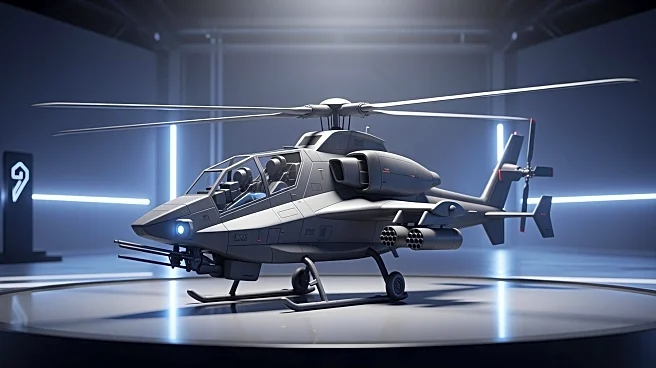What's Happening?
Italy has approved a follow-on order for the Leonardo AW249 Fenice attack helicopter, adding 29 units to the 19 already ordered. This decision is part of the New Reconnaissance and Escort Helicopter (NEES)
program, with a contract valued at EUR1.225 billion set to be placed in 2026. Deliveries are expected to run through to 2032, culminating in a total of 48 helicopters for the Italian Army. The AW249, showcased at the Eurosatory 2024 exhibition, is a twin-engined, twin-seat attack helicopter developed by Leonardo, primarily for the Italian Armed Forces but also for export. It is designed to replace the AW129 Mangusta, offering improved performance, survivability, offensive capability, and digital communications.
Why It's Important?
The procurement of additional AW249 helicopters signifies Italy's commitment to enhancing its military capabilities. The AW249's advanced features, including increased survivability and offensive capabilities, are expected to bolster Italy's defense posture. This move may also influence the European defense landscape, as Italy positions itself as a key player in military technology. The investment in these helicopters reflects a strategic focus on modernizing military assets, potentially impacting defense budgets and policy decisions within Italy and across Europe.
What's Next?
With the contract set to be placed in 2026, Italy will begin receiving the AW249 helicopters starting in 2027. This timeline suggests a gradual enhancement of Italy's military capabilities over the next decade. Stakeholders, including defense contractors and military strategists, will likely monitor the integration of these helicopters into Italy's armed forces. Additionally, the export potential of the AW249 may lead to further international collaborations and sales, influencing global defense markets.
Beyond the Headlines
The development and procurement of the AW249 highlight the ongoing evolution of military technology, emphasizing the importance of digital communications and autonomy in modern warfare. This trend may lead to ethical and strategic discussions about the role of advanced technology in military operations, including considerations of international arms agreements and the balance of power.









